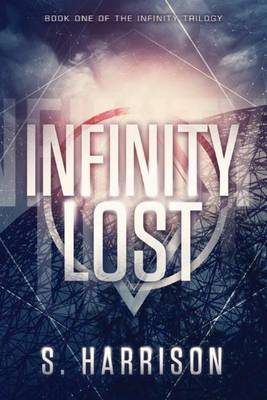
In the near future, one corporation, Blackstone Technologies, has changed the world: no disasters, no poverty, and life-altering technology. Blackstone has the impunity to destroy—or create—as it sees fit.
Infinity “Finn” Blackstone is the seventeen-year-old daughter of Blackstone’s reclusive CEO—but she’s never even met him. When disturbing dreams about a past she doesn’t remember begin to torment her, Finn knows there’s only one person who can provide answers: her father.
After Finn and an elite group of peers are invited to Blackstone’s top-secret HQ, Finn realizes she may have a chance to confront her father. But when a highly sophisticated company AI morphs into a killing machine, the trip descends into chaos. Trapped inside shape-shifting walls, Finn and her friends are at the mercy of an all-seeing intelligence that will destroy everything to get to her.
With no hope of help, Finn’s dream-memories may be the only chance of survival. But will she remember in time to save her own life and the lives of those around her?
Slow Burn with Intrigue. This book starts with a 17yo girl, Finn, dreaming. For the first time in her life. As we get more into the story, we see her dreams becoming more and more disturbing - including the scene when she is 6yo that has gotten this book several 1 star reviews. But progressing from there, the book picks up and turns slightly in an action direction, after a bit of fantastical science fiction. And then the conclusion... well, it ends a bit abruptly, clearly designed to pick up from there in the next book. We get few answers in this book, and the answers we get mostly serve to whet the appetite for what is to (hopefully) come - with the ultimate question never answered here. Overall a great, immersive tale. Looking forward to seeing where this goes.
Reading updates
-
Started reading
-
28 February, 2018:
Finished reading
-
28 February, 2018:
Reviewed
